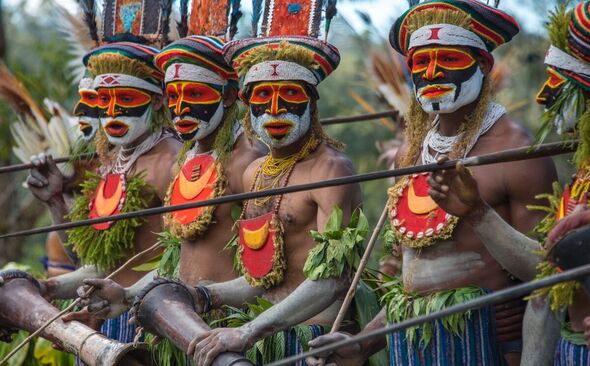Papua New Guinea is the country where the most languages are spoken—840, more than twice as many as Europe.
Continental Europe has 287 different languages, with 1,061 in the Americas and 1,313 in the Pacific region, according to Statista.
By country, Papua New Guinea is followed by Indonesia, where there are 712 languages, then Nigeria, with 522 and India, where 454 tongues are spoken.
There are thought to be over 7,000 languages around the world, with the most being in Asia.
That continent has 2,300 and is followed by Africa with 2,144. However, one chart published by Statista has shown around 40% of the world’s languages are at risk of disappearing as fewer and fewer people speak some down the generations.
Half of New Guinea’s island is a province of Indonesia. In contrast, the other half comprises Papua New Guinea and has about 1,000 languages, according to the University of Cambridge.
Fewer than 5,000 people speak some tongues, and others fewer than 500. Papua New Guinea has three official languages: Tok Pisin, Hiri Motu, and English.
Tok Pisin is a mix of a local language with English, with 50,000 first language and two million second language speakers.
It is the native language of some people in cities and the main means of communication between different language speakers as well as the most frequently used language in Parliament and business.
Hiri Motu is mainly used as a second language and is also influenced by English, Tok Pisin, and other Polynesian languages.
Papua New Guinea’s hundreds of languages are believed to have endured thanks in part to the country’s rugged terrain, which has meant villages remained isolated from others, thus preserving their tongues.
According to Britannica, Papuan languages have influenced each other, with basic vocabulary, pronouns and grammar adopted from one language’s speakers into another’s.
Some Papuan languages use variations in pitch to differentiate between words, similar to China.
So, for example, the word “di” in Obokuitai, when spoken with a high-pitched voice, means “red,” but it means “you” if said in a low voice.
